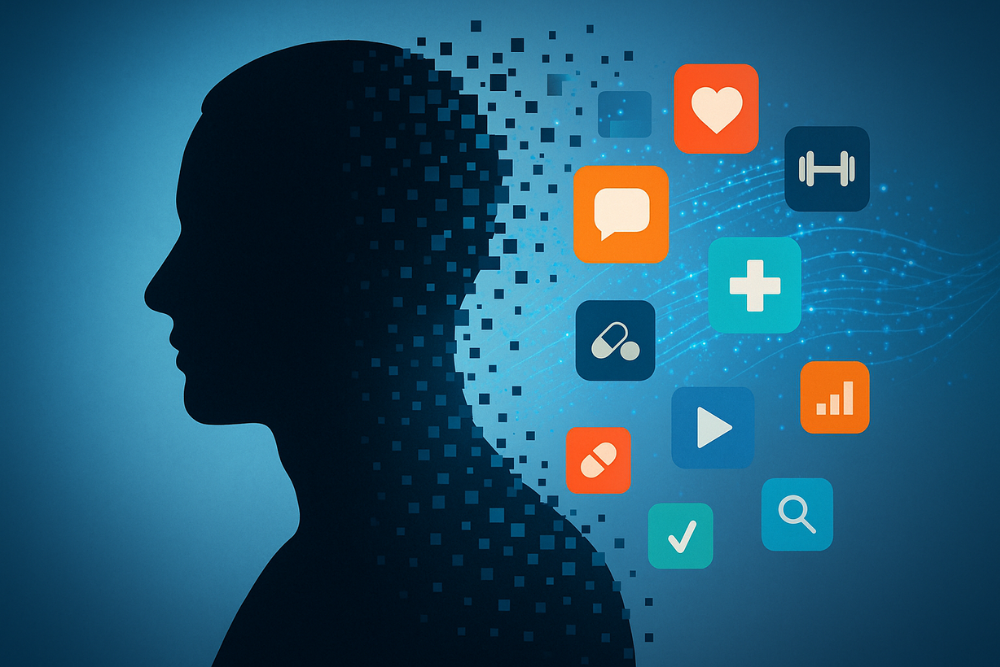
The ability to find, understand, critically evaluate and apply health-related information in everyday life - that is Health literacy. In workplace health promotion, it is a crucial success factor. Only when employees are in a position to actively utilise health services and take responsibility for their own well-being can OHM measures be fully effective.
However, the reality shows that there is an enormous need for action. According to the current study on the health literacy of the population in Germany (HLS-GER 2) 58,8 % of respondents had a Low health literacy. Particularly affected are people with low level of education (78.3 %), low social status (71.9 %), Migration background (63.1 %) and Young adults (18-29 years: 60.7 %) - This also includes many target groups in the business environment.
According to the study, respondents find it most difficult to evaluate health information (74.9 % low competence) and to use it (53.7 %). Digital health literacy is particularly low - three quarters of the population have difficulties dealing with digital health information.
This means: Many employees feel overwhelmed when it comes to digital tools or apps for health promotion - a major obstacle in an increasingly digitalised world of work.
If companies want to use apps, online training or digital tools to reduce stress or promote resilience, they need to not only technical solutions, but also targeted measures to promote digital health literacy. Only in this way can these offers have a truly sustainable effect.
Practical example: Isa - the personal AI health coach.
An interactive digital tool such as the "Isa Health Coach" can help to identify stress at an early stage and provide employees with targeted impulses for recovery and self-regulation - for example through micro-breaks, breathing exercises or personalised recommendations. However, in order for such a tool to be used, it needs introductory aids, low-threshold access and targeted promotion of health expertise - e.g. through accompanying training, tutorials or integration into team meetings.

Health literacy has a direct impact on the behaviour and health of employees - according to the study, low health literacy is associated with more absences, unhealthier diet, less movement and one more frequent use of the healthcare system. In the corporate context, this means that investing in the promotion of (digital) health literacy not only strengthens the health of employees, but also the effectiveness and sustainability of all OHM measures.
Sources of the studies:
Schaeffer, D. et al (2021): Health literacy of the population in Germany - before and during the corona pandemic: Results of the HLS-GER 2. Bielefeld: Interdisciplinary Centre for Health Literacy Research (IZGK), Bielefeld University. DOI: 10.4119/unibi/2950305

Simon Fiechtner
I'm Simon, co-founder of Deep Care and I've been working in the fields of health and artificial intelligence for many years. After several years of experience in HR and business development at a large corporation, I decided to turn this passion into a start-up together with colleagues and friends.
You are currently viewing a placeholder content from HubSpot. To access the actual content, click the button below. Please note that doing so will share data with third-party providers.
More InformationYou are currently viewing a placeholder content from HubSpot. To access the actual content, click the button below. Please note that doing so will share data with third-party providers.
More InformationYou are currently viewing a placeholder content from HubSpot. To access the actual content, click the button below. Please note that doing so will share data with third-party providers.
More InformationYou are currently viewing a placeholder content from HubSpot. To access the actual content, click the button below. Please note that doing so will share data with third-party providers.
More InformationYou are currently viewing a placeholder content from HubSpot. To access the actual content, click the button below. Please note that doing so will share data with third-party providers.
More InformationYou are currently viewing a placeholder content from Facebook. To access the actual content, click the button below. Please note that doing so will share data with third-party providers.
More Information